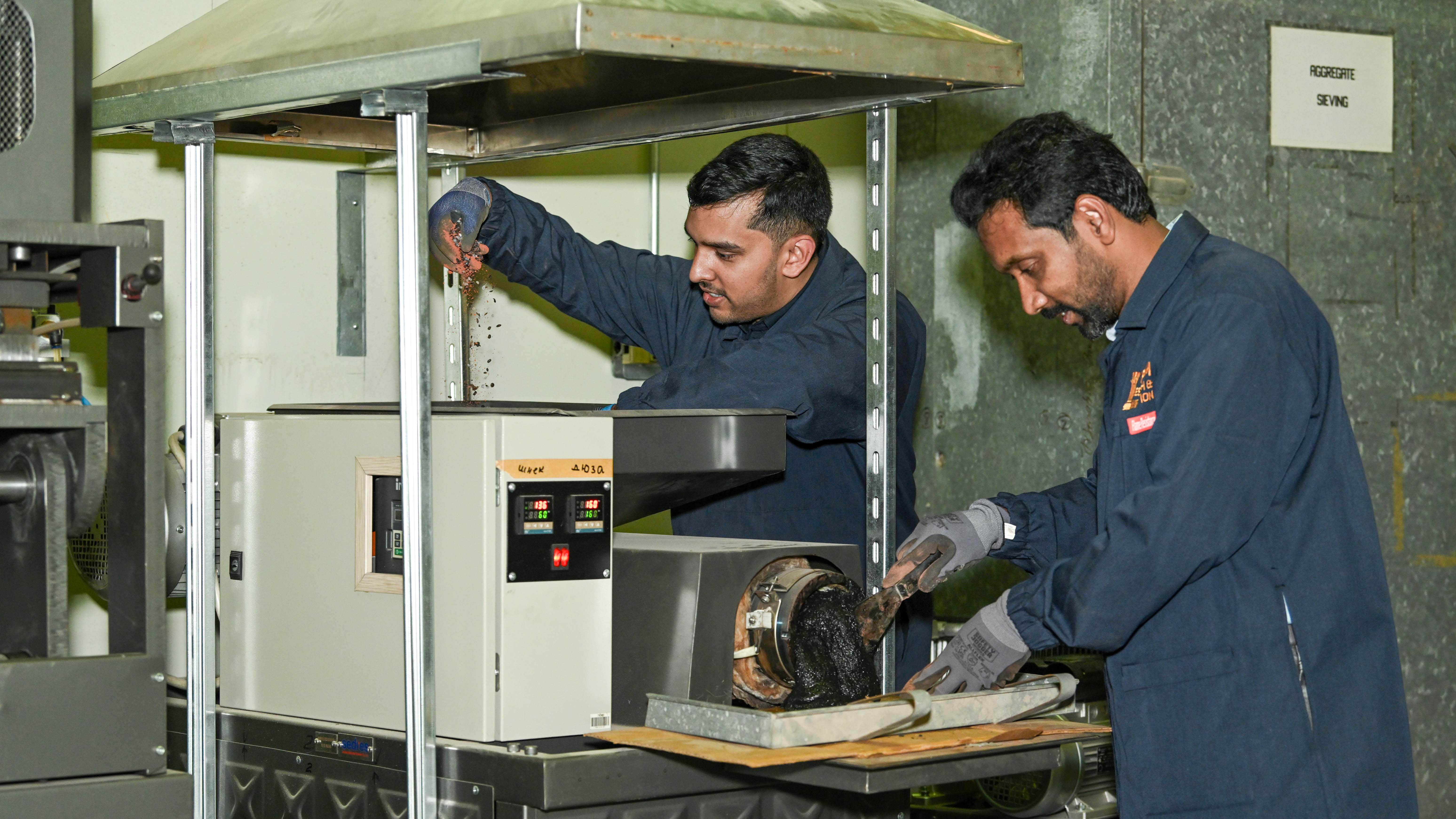Transforming Industrial Waste into Smarter Building Solutions
Affiliated Research Center:
Applied Research Center for Metrology, Standards and Testing
Research team:
Dr. Jobin Jose and Dr. Luai Alhelms

What industries throw away, KFUPM scientists are turning into opportunity. An ambitious team of researchers from the Applied Research Center for Metrology, Standards and Testing, led by its director Dr. Luai Alhelms, as well as Dr. Jobin Jose, has developed a method to convert recycled plastic and industrial waste into durable, energy-efficient building blocks.
Given the significant volume of industrial byproducts generated across sectors such as petrochemicals, mining, and oil refining, this effort could redefine how we approach waste and construction in Saudi Arabia. “We’re surrounded by materials that are either underused or discarded,” says Dr. Jobin, whose expertise lies in polymer recycling. “Rather than letting them accumulate in landfills, we’re creating something useful and durable.”
The team developed a custom-built extruder capable of processing industrial waste byproducts, like red mud or oil fly ash, as well as consumer plastic waste, such as PET, polyethylene and polypropylene disposable products. Unlike standard machines, this extruder is reinforced and temperature-calibrated to handle abrasive and thermally demanding inputs while minimizing power consumption. “It’s tailored to Saudi Arabia’s context, from the materials we have to the heat we deal with,” explains Dr. Luai, who helped design the machine itself. Energy expenditure is monitored in real time, and current estimates place production costs at around 3.5 to 4 SAR per square meter of tile, figures expected to decrease if scaled beyond the lab setting.
Once the blend of waste material is extruded, it moves on to the compressor, which automatically adjusts to the volume of material fed in, ensuring that each slab maintains consistent density and retains key properties such as durability. The slabs themselves are surprisingly lightweight, depending on their thickness, and significantly more durable than expected. Concrete can be prone to breaking during handling, but these custom slabs are designed to remain intact. Their lower weight of just 1kg, when compared to regular concrete’s weight of around 3-5 kg, also makes them easier to transport.
Custom molds allow for a variety of shapes, sizes, and finishes, from flooring tiles to wall panels to building blocks. Their heat tolerance is also promising; composed primarily of thermoplastics that soften around 100°C and melt above 150°C, and reinforced with easily found aggregates, they are well-suited to withstand Saudi Arabia’s climate.
This project reflects KFUPM’s interdisciplinary research model, integrating contributions from chemical engineering, civil engineering, mechanical design, and materials science. Ongoing testing and prolonged exposure trials are underway to observe weathering resistance, chemical shifts, and physical integrity over time.
Long-term, the team aims to build a sustainable pipeline: collecting waste, repurposing it efficiently, and offering a cost-effective, environmentally safer construction option. As part of its broader impact, the project aligns with several UN Sustainable Development Goals, particularly those focused on waste reduction and clean energy.
United Nations SDGs
Through our commitment to sustainable development, this project aligns with the following United Nations Sustainable Development Goals (SDGs):

Affordable and Clean Energy

Responsible Consumption and Production